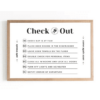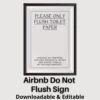Understanding Your Tax Obligations
Being an Airbnb host sounds exciting, right? You get to meet new people, earn income, and often share your lovely space. But along with the thrill of hosting comes the not-so-glamorous reality of taxes. Let’s break down what you need to know about your tax obligations.
Federal Income Tax Basics
First up is the federal income tax. You probably already know this, but it’s worth repeating: every dollar you make from hosting is taxable income. Yes, that’s right! When you earn money Airbnb-hosting, Uncle Sam wants his share. The federal tax rate can really vary—anywhere from 10% to 37%—depending on your overall income.
For a practical example, let’s say you’re earning around $10,000 from Airbnb in a year, and you find yourself in the 24% tax bracket. You could be looking at a bill of approximately $2,400 in federal taxes. To get detailed information, the IRS website is your best friend. Trust me, keeping up with federal tax rates can help you plan ahead.
State Income Tax Variances
Next, let’s chat about state income tax. Just like people come in different shapes and sizes, so do state tax laws—which can be a bit of a mixed bag! Every state has its own rules about how to report rental income, and tax rates can differ widely. For example, if you’re in Florida or Texas, you’ll be pleased to hear they have a zero percent state income tax. On the flip side, California can hit host pockets hard with rates over 13%. Ouch!
So, if your Airbnb income nudges $10,000 in California, factor in about $1,300 in state taxes. Make sure you check your state’s revenue department’s website to stay updated on any changes. You’ll be grateful you did when tax season rolls around.
Local Occupancy Taxes
Ah, the sneaky local taxes. Many cities and counties opt to impose local occupancy taxes, often referred to as lodging or tourist taxes. These can range widely from 1% to 15% of the rent you charge your guests. For instance, if you charge $100 per night, and your city has a 10% lodging tax, that means you need to add an extra $10 to your guest’s bill.
Now, here’s where it gets interesting: in several locations, Airbnb will actually collect and remit these taxes for you. However, in some cities, you’ll need to dive into the local tax collection process yourself. It’s important to get familiar with what your area requires, which you can typically find on your city or county government website.
“Taxes are the price we pay for a civilized society.” – Oliver Wendell Holmes Jr.
Staying Ahead of Deductions
Okay, let’s switch gears for a moment! Knowing your tax obligations doesn’t just mean paying up. It’s also essential to understand what you can deduct. Deductible expenses reduce the taxable income you report. Think about it: cleaning fees, maintenance costs, utilities, and any supplies you provide to your guests are all fair game. So, if you earned $20,000 and spent $3,500 on expenses, you’ll only owe taxes on $16,500. Sounds much better, doesn’t it?
Keep track of all those receipts! They’re your lifeline when it comes to proving your deductions during an audit. Consider running a simple spreadsheet or using dedicated software for tracking. There’s loads of user-friendly accounting tools out there—trust those who manage multiple properties as they’ll steer you in the right direction.
Reporting Your Rental Income
When tax season rolls around, you’ll need to report your rental earnings and expenses using Schedule E on your federal tax return. This is where you’ll capture everything: your rental income, your reported expenses, and tie it all together on your Form 1040. For your state taxes, remember to follow the specific requirements for your location.
Getting Professional Help
If all of this seems a bit overwhelming, don’t hesitate to consult a tax professional. Many online accounting services specialize in tax returns for short-term rental hosts. Getting expert help might seem like an added expense, but it can save you from future headaches—and maybe even money!
Pro Tips for a Smoother Process
Finally, here are some golden nuggets of wisdom: consider setting aside 25% to 30% of your rental income throughout the year to cover your taxes. Keep an eye on any changes in tax laws that might affect you, and dedicate some time each month to update your records. Think about separating your Airbnb income by opening a dedicated bank account—this can simplify your financial tracking.
If you find your Airbnb income substantial, it may be wise to look into quarterly estimated taxes to avoid any penalties for underpayment. And remember, keep both physical and digital copies of all your financial records.
“The hardest thing in the world to understand is the income tax.” – Albert Einstein
With all this information in hand, you can better navigate the tricky waters of taxes while hosting. Are you ready to take charge of your Airbnb tax obligations? You’ve got this!
Maximizing Your Deductions
As an Airbnb host, you’re probably aware that taxes can feel like a looming cloud, waiting to rain on your parade. But fear not! Understanding how to maximize your deductions is key to minimizing what you owe. Let’s dive into how you can keep more of your hard-earned rental income in your pocket by identifying deductible expenses and maintaining organized records.
Identifying Deductible Expenses
The first step in maximizing your deductions is knowing what expenses you can write off. Did you know that virtually any expense you incur that is necessary for operating your Airbnb can potentially be deductible? This includes cleaning fees, maintenance costs, utility payments, and even the amenities you provide to your guests. Imagine being able to deduct those pricey cleaning bills each time you hire someone to freshen up your rental!
Let’s break it down with a hypothetical scenario: suppose you made $20,000 from hosting and racked up $3,500 in deductible expenses. Just like that, you’re only taxed on $16,500! This difference can significantly lighten your tax burden.
- Cleaning Fees: If you’re hiring a service to keep your space sparkling, those costs can be deducted.
- Maintenance Costs: Repairs and upkeep of your property? Write it off!
- Utilities: Gas, electricity, water—these can all reduce your taxable income.
- Amenities: Snacks, toiletries, Wi-Fi—everything that enhances your guest experience can also enhance your deductions.
It’s really all about understanding your roles as a host. The more detail you track, the more you can potentially save when tax season rolls around.
Keeping Track of Receipts
Now that you know what expenses you can deduct, let’s talk about one of the most essential duties of being an Airbnb host: keeping track of your receipts. Trust me, missing out on valuable deductions because you can’t find a receipt is the absolute worst. Mimicking the classic shoebox approach—where receipts endlessly pile up and become a chaotic mess—can lead to disaster when tax time comes around.
Instead, consider a more organized method. A simple spreadsheet can do wonders for your sanity, or you might want to check out accounting software tailored for hosts. These tools can help you log income, track expenses, and store receipts in an easily accessible manner.
“Failing to plan is planning to fail” – Alan Lakein
This quote truly resonates when it comes to managing your finances. Preparing and organizing as you go can make a massive difference and save you significant headaches down the line.
Examples of Common Deductions
Let’s put all this information into perspective with some clear examples. You might be surprised at what you can write off. Here’s a list of common deductions that many hosts overlook:
- Cleaning Fees: If you hire a cleaner after each guest, track those costs meticulously.
- Maintenance and Repairs: This includes everything from fixing a leaky faucet to replacing broken furniture.
- Utilities: If you’re paying for Wi-Fi, electricity, or gas while your property is rented out, these expenses are deductible.
- Marketing Costs: If you run ads on platforms to attract more guests, these costs count too.
This might also not be the time to skimp on keeping good records. If you expect to have an audit, having detailed receipts will save you from a lot of permanent red flags!
A Hypothetical Scenario
Picture this: You’ve generated a rental income of $20,000 this year. After deducting $3,500 in expenses for cleaning, maintenance, and utilities, guess what? You only owe taxes on $16,500! This simple practice of tracking deductible expenses can change your financial landscape significantly.
Plus, being savvy can set you apart in today’s competitive rental market and keep your stress levels lower during tax season.
The Importance of Proactive Record Keeping
By adopting organized record-keeping practices, you not only secure your deductions but also ensure that you’re not stressed out come tax time. Set aside a little time each month to review your records and get those receipts in order. You’ll feel a sense of accomplishment and relief as you look forward to tax season without a mountain of paperwork looming over you!
Whether you decide to go the old-fashioned route with a binder full of receipts or opt for a sleek app that keeps everything digital, just make sure you stick to a system that works for you.
Finally, don’t forget: if the numbers feel overwhelming or tax codes confuse you, consider consulting with a tax professional who understands the ins and outs of rental properties. They can provide insights and assistance that may prove beneficial—ensuring you’re not leaving money on the table.
In the end, educating yourself on tax deductions isn’t just smart; it’s a sound financial practice every Airbnb host should embrace. With a little knowledge, some organization, and proactive planning, you can keep your expenses in check and maximize your hard-earned income. Happy hosting!
Organizing Financial Records Effectively
Let’s dive into a topic that might seem daunting at first but can make your life significantly easier: organizing your financial records effectively. Whether you’re hosting on Airbnb or simply managing any rental properties, keeping your financial records organized is crucial for your peace of mind and the health of your finances. So, how can you transform this tedious task into a streamlined process? Let’s take a closer look.
Using Tools and Software for Tracking
One of the first steps in organizing your financial records is utilizing the right tools. You wouldn’t go into battle without your weapons, right? Similarly, don’t attempt to manage your finances without the proper resources. Digital tools and software can significantly boost your efficiency in tracking income and expenses. Consider using popular bookkeeping applications specifically designed for Airbnb hosts. These apps often sync seamlessly with your listings and transactions, making it easy to access everything you need at your fingertips.
If you prefer a more hands-on approach or simply feel overwhelmed by tech, a straightforward spreadsheet could be your best bet. Create dedicated columns for income, expenses, and dates. This allows you to customize your tracking system according to your personal style, ensuring that it feels intuitive rather than burdensome.
Establishing a Dedicated Filing System
Now that you have your digital tracking tools in place, it’s time to establish a dedicated filing system. Think of this step as setting the rules of the game. Just as every game has its guidelines, your financial organization needs its structure. Start by creating distinct categories for different types of records—income documents, expense invoices, tax-related paperwork, and so on. You can create physical or digital files; the key is to ensure consistent categorization. Use clear labels to prevent any confusion when looking back over your records.
Additionally, consider opening a separate bank account to streamline tracking. Keeping your personal and business finances apart makes record-keeping much simpler. You’ll be able to analyze your cash flow through clear, organized accounts and make better business decisions with this level of clarity. Having one dedicated account means you won’t have to sift through personal transactions to find your rental income. Not to mention, this approach is immensely helpful during tax time!
Importance of Keeping Digital Backups
In today’s digital age, losing financial records can cause disruptions that you definitely want to avoid. That’s why prioritizing digital backups is essential. Cloud storage options like Google Drive or Dropbox offer user-friendly solutions for saving important documents securely. You might think, “Why do I need backups?” Well, you never know when a hard drive might fail or a file may accidentally get deleted. Having digital copies means you can access your records anytime and from anywhere, ensuring you’re never left in a financial bind.
Moreover, keeping both physical and digital copies provides additional security. Imagine having a stack of tax documents in a folder that gets misplaced—all your efforts down the drain! Avoid this by double-storing your information in both formats. If the original document is lost or damaged, you’ll have a secondary option readily available.
Cost-Effective Methods of Record Keeping
When it comes to organizing your financial records, cost-effectiveness is key. You don’t necessarily need to invest in expensive software or services. There are numerous free or low-cost bookkeeping tools available that still provide excellent functionality to suit your needs. Explore various platforms and read reviews to find the right match. Remember, the goal is to make tracking enjoyable and manageable.
Deductible Expenses and Record Keeping
Understanding which expenses are deductible is a game-changer in managing your taxes as an Airbnb host. By categorizing and tracking your deductible expenses—cleaning services, maintenance bills, and any amenities you provide to guests—you not only reduce your taxable income but also assure that you’re maximizing your profits. For example, let’s say you rent out your property and incur various costs; if you can showcase those costs correctly, it might lower your tax burden significantly. Keeping receipts and invoices organized is vital for protecting these deductions in case of an audit.
“A penny saved is a penny earned.” – Benjamin Franklin
This quote rings particularly true when considering the impact of organized finances. A little effort today can lead to big savings tomorrow!
Final Thoughts on Record Organization
By creating a rounded approach to financial record organization—including leveraging tools for tracking, establishing a dedicated filing system, and keeping digital backups—you position yourself for success. You’ll not only find tax time much less stressful but also gain insights into your rental business’s overall performance. Remember, an organized host is a winning host! So, take the plunge today, and let’s turn what might seem overwhelming into a seamless, manageable task.
As you kickstart this journey, remember that the foundational principle you’re building upon is not just about keeping records—it’s about enhancing your entire hosting experience. The better organized you are, the more you can focus on what you love about being a host.
Preparing for Tax Filing Season
As the tax filing season approaches, the thought of dealing with taxes can feel overwhelming. But don’t worry, you’re not alone. Many individuals—especially those hosting on platforms like Airbnb—often find themselves tangled in tax complexities. Whether you’re new to the game or have filed taxes before, this year can be different. With some solid preparation and a few strategies at hand, you can navigate this process smoothly. Let’s dive into some tips that will not only ease your mind but also keep you organized.
Tips for a Smooth Filing Process
First things first, preparing for tax season doesn’t have to lead to panic. One of the best tactics is to regularly set aside a portion of your earnings specifically for taxes. The general rule of thumb? Aim to save about 25% to 30% of your income. If you’re an Airbnb host, that means being proactive and saving throughout the year. Imagine you earn $10,000 from rentals; having $2,500 to $3,000 set aside will mean less stress when it’s time to pay up.
Next, let’s talk about record-keeping. A little organization goes a long way. You might consider keeping a simple spreadsheet or opting for accounting software that can track your income and expenses for you. Keeping all your receipts and invoices related to your rental operation is crucial—not just for tax time, but to prove your deductions in case of an audit down the line!
“Preparation is the key to success.” – Alexander Graham Bell
Consultation with Tax Professionals
If the tax code feels like a foreign language to you, that’s completely understandable. Consulting a tax professional can save you a lot of headaches and, potentially, money. These experts can help clarify the complexities of tax laws that are particularly relevant to your situation. Many professionals specialize in assisting individuals with short-term rentals, so don’t hesitate to reach out if you feel lost. Think of it as an investment in peace of mind.
In addition to expert advice, some online accounting services are tailored specifically for tax returns related to short-term rentals. Many hosts have found these resources invaluable, which could be an option worth exploring as tax season rolls around.
Setting Aside Funds for Taxes
Now, let’s circle back to that key aspect—setting aside funds for taxes. According to various tax authorities, putting aside 25% to 30% of your income throughout the year is often recommended. You might be wondering: how does that make tax filing easier? Well, it means come filing season, you won’t be scrambling to gather all your funds; rather, you’ll have a dedicated tax stash ready and waiting. This proactive approach can help mitigate last-minute panic, allowing you to approach tax season with a calmer mindset.
For Airbnb hosts, this means considering not just federal income tax but also state and local taxes. Some states, like Texas and Florida, don’t have state taxes; meanwhile, states like California can be steep. If you end up earning $10,000 in California, brace for a state tax that could run you up to $1,300. Take time to familiarize yourself with your specific obligations—visit your state’s revenue department for guidelines! And don’t forget local occupancy taxes, which can add an extra layer of complexity.
Timelines for Tax Preparation
Lastly, the timeline for tax prep generally stretches from January to April. This means that planning ahead is essential. Allocating specific time slots each month to review your financial records can ensure you don’t fall behind. A dedicated bank account for your Airbnb income can also streamline tracking—keeping your business and personal expenses separate is always a smart choice.
Wrapping It Up
As you gear up for tax season, remember that being proactive and organized can reduce stress. Whether you’re a seasoned Airbnb host or just dipping your toes into the short-term rental market, early preparation is your best friend. Save those earnings, keep your records straight, and don’t hesitate to get professional help when needed. Starting now will allow you to file with confidence, making the entire tax process a straightforward experience.
Whether you learned something new or have questions, feel free to join the conversation. Your insights not only add value but also contribute to a community looking to navigate the intricacies of tax filing together. Happy hosting!
TL;DR: Tackle tax season by saving 25%-30% of your income for taxes, keeping organized records, and considering professional guidance for clarity. A proactive approach means less stress when filing!








